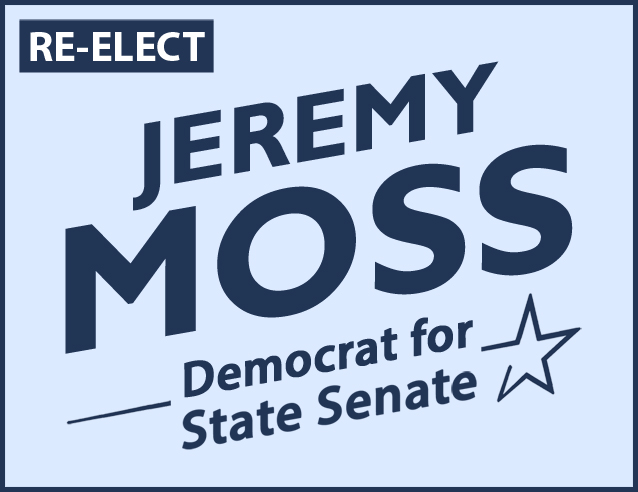[The following is a South Oakland Eccentric endorsement]
"Congress shall make no law respecting an establishment of religion, or prohibiting the free exercise thereof; or abridging the freedom of speech, or of the press, or the right of the people peaceably to assemble, and to petition the Government for a redress of grievances.”
Bill of Rights to the U.S. Constitution
Article 1
Jeremy Moss had kept a close eye on how the city of Royal Oak voters would handle an expansive ballot proposal that would, if passed, prohibit discrimination on everything from gender to race...to sexual orientation.
The Royal Oak campaign was hotly contested, but ultimately, the proposal passed in November 2013.
Since then, Moss, a Southfield city councilman, has studied the issue and brought it before the council’s legislative committee. Monday night, he took the next step and brought it before the full council (Sid Lantz was absent) under the council communications portion of the agenda.
Moss asked the council for a concensus on whether the city attorney should be asked to come up with a similar ordinance proposal. He got what he wanted – a yes – but the vote was much closer than the 4-2 vote appears.
Voting no were Council President Sylvia Jordan and Councilwoman Joan Seymour. Voting in favor were Moss, of course, and Councilmen Ken Siver and Myron Frasier. The swing vote was Don Fracassi, who initially appeared to be headed to a no vote but then changed his mind and said he would “take a look at it,” making for the fourth vote.
“I’ll appease you,” Fracassi said directly to Moss, the youngest member of the Southfield Council. It was something like giving a child a saltine when he asked for a pretzel.
The implications of this vote are several. First, there was no date certain for the city attorney to bring back a proposed ordinance, meaning the subject could languish.
Second, if an ordinance does go before council, expect a fight.
Third – and this is the reason for this editorial – there is a disquieting similarity between the reasons given by Jordan and Seymour for voting no, and for the reason given by Royal Oak Mayor Pro Tem David Poulton for opposing a resolution, also passed Monday night, that tells Michigan Attorney General Bill Schuette to quit opposing gay marriage.
Schuette had filed a motion with the Court of Appeals, seeking to overturn a recently ruling in a lower court that struck down a voter-approved ban on same-sex marriage.
Monday night, Commissioners Peggy Goodwin abstained from the vote and Mike Fournier was absent from the meeting.
Poulton, an attorney, also opposed the civil rights ordinance passed in Royal Oak. This time he admitted that the issue is important, but he argued that issue was engaged in a political process that should be allowed to play out.
In other words, it is a state issue.
A similar argument was used by Jordan and Seymour in opposing the move to develop a Southfield civil rights ordinance. Both said it was a state issue and should be resolved at the state level.
These three people – Poulton, Seymour and Jordan – have forgotten their history lessons. Take a look at the wording of the First Amendment to the Bill of Rights to the U.S. Constitution. It is embedded in this editorial, for your quick review.
Among the important provisions of the Amendment we want to call your attention to is the right “...to petition the Government for a redress of grievances.”
That is just exactly what Royal Oak has done with both its civil rights ordinance and Monday’s resolution, and also what Southfield would be doing if it passed a civil rights ordinance. Both cases support the rights of the gay community to be protected from discrimination, which state law currently does not do.
History teaches us another lesson: That petitioning the government is not only the right and proper thing to do, but that it also is effective.
That was the case in the Vietnam War and in the civil rights movement. Protests and marches were many during those stormy periods, and they were largely responsible for pushing those who governed this country to end the war and to protect the civil rights of at least some of those it governs.
And local governments certainly have on issues like Proposal A in funding education and federal revenue sharing in bolstering local government coffers, compelling the state Legislature and governor to take notice.
Arguing that the state should protect the rights of those in the gay community may allow some to hid their true feelings behind a ruse. That may not be the case in these instances.
But Royal Oak, with a law on the books that protects the civil rights of everyone, prohibiting discrimination by way of sexual orientation, has a responsibility to redress the state government from infringing on the rights of those it has just protected.
And in Southfield, which prides itself on being all emcompassing and the “center of it all,” not to pass such an ordinance is a step back.
We recognize the argument of federal vs. local rights, but democratic principles mandate that our local governments – a.k.a. the people who have elected those sitting in power – speak up.
It’s our right, it’s the law. And it’s the decent thing to do.
